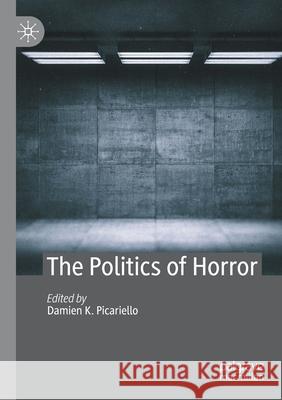The Politics of Horror » książka
topmenu
The Politics of Horror
ISBN-13: 9783030420178 / Angielski / Miękka / 2021 / 282 str.
The Politics of Horror
ISBN-13: 9783030420178 / Angielski / Miękka / 2021 / 282 str.
cena 441,75
(netto: 420,71 VAT: 5%)
Najniższa cena z 30 dni: 424,07
(netto: 420,71 VAT: 5%)
Najniższa cena z 30 dni: 424,07
Termin realizacji zamówienia:
ok. 22 dni roboczych
Dostawa w 2026 r.
ok. 22 dni roboczych
Dostawa w 2026 r.
Darmowa dostawa!
Kategorie BISAC:
Wydawca:
Palgrave MacMillan
Język:
Angielski
ISBN-13:
9783030420178
Rok wydania:
2021
Wydanie:
2020
Ilość stron:
282
Waga:
0.36 kg
Wymiary:
21.01 x 14.81 x 1.63
Oprawa:
Miękka
Wolumenów:
01
Dodatkowe informacje:
Wydanie ilustrowane











